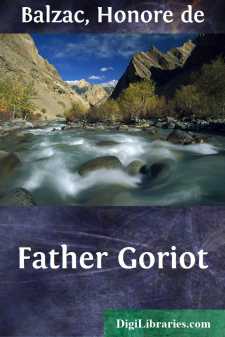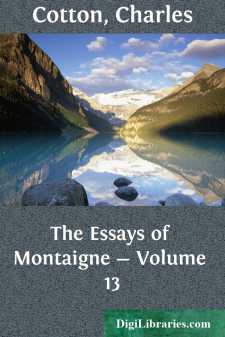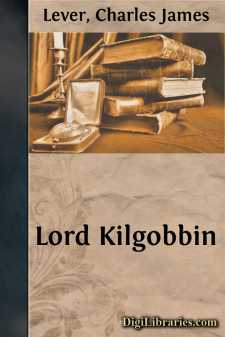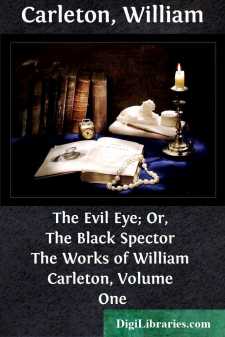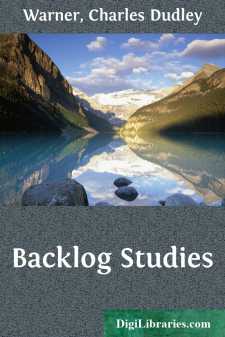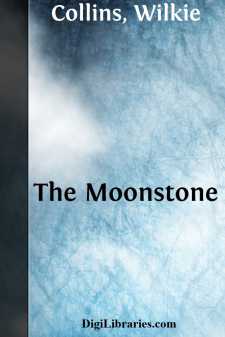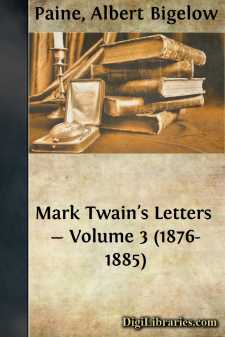Literary Collections
- American 84
- Ancient, Classical & Medieval 14
- Asian 1
- Australian & Oceanian 1
- Canadian 55
- Continental European 121
- English, Irish, Scottish, Welsh 179
- Essays 160
- General 24
- Letters 46
- Middle Eastern 1
Literary Collections Books
Sort by:
by:
John Dryden
AMBOYNA. The tragedy of Amboyna, as it was justly termed by the English of the seventeenth century, was of itself too dreadful to be heightened by the mimic horrors of the stage. The reader may be reminded, that by three several treaties in the years 1613, 1615, and 1619, it was agreed betwixt England and Holland, that the English should enjoy one-third of the trade of the spice islands. For this...
more...
by:
Honore de Balzac
FATHER GORIOT Mme. Vauquer (nee de Conflans) is an elderly person, who for the past forty years has kept a lodging-house in the Rue Nueve-Sainte-Genevieve, in the district that lies between the Latin Quarter and the Faubourg Saint-Marcel. Her house (known in the neighborhood as the Maison Vauquer) receives men and women, old and young, and no word has ever been breathed against her respectable...
more...
by:
Charles Cotton
DEFENCE OF SENECA AND PLUTARCH The familiarity I have with these two authors, and the assistance they have lent to my age and to my book, wholly compiled of what I have borrowed from them, oblige me to stand up for their honour. As to Seneca, amongst a million of little pamphlets that those of the so-called reformed religion disperse abroad for the defence of their cause (and which sometimes proceed...
more...
To the Rev. J. Jowett Willow Lane, St. Giles, Norwich, Feb. 10th, 1833. Revd. and dear Sir,—I have just received your communication, and notwithstanding it is Sunday morning, and the bells with their loud and clear voices are calling me to church, I have sat down to answer it by return of post. It is scarcely necessary for me to say that I was rejoiced to see the Chrestomathie Mandchou, which will...
more...
CHAPTER I KILGOBBIN CASTLE Some one has said that almost all that Ireland possesses of picturesque beauty is to be found on, or in the immediate neighbourhood of, the seaboard; and if we except some brief patches of river scenery on the Nore and the Blackwater, and a part of Lough Erne, the assertion is not devoid of truth. The dreary expanse called the Bog of Allen, which occupies a tableland in the...
more...
by:
William Carleton
CHAPTER I. Short and Preliminary. In a certain part of Ireland, inside the borders of the county of Waterford, lived two respectable families, named Lindsay and Goodwin, the former being of Scotch descent. Their respective residences were not more than three miles distant; and the intimacy that subsisted between them was founded, for many years, upon mutual good-will and esteem, with two exceptions...
more...
FIRST STUDY The fire on the hearth has almost gone out in New England; the hearth has gone out; the family has lost its center; age ceases to be respected; sex is only distinguished by a difference between millinery bills and tailors' bills; there is no more toast-and-cider; the young are not allowed to eat mince-pies at ten o'clock at night; half a cheese is no longer set to toast before the...
more...
by:
George Meredith
CHAPTER I. ACROSS LONDON BRIDGE A gentleman, noteworthy for a lively countenance and a waistcoat to match it, crossing London Bridge at noon on a gusty April day, was almost magically detached from his conflict with the gale by some sly strip of slipperiness, abounding in that conduit of the markets, which had more or less adroitly performed the trick upon preceding passengers, and now laid this one...
more...
by:
Wilkie Collins
CHAPTER I In the first part of ROBINSON CRUSOE, at page one hundred and twenty-nine, you will find it thus written: "Now I saw, though too late, the Folly of beginning a Work before we count the Cost, and before we judge rightly of our own Strength to go through with it." Only yesterday, I opened my ROBINSON CRUSOE at that place. Only this morning (May twenty-first, Eighteen hundred and fifty),...
more...
The Monday Evening Club of Hartford was an association of most ofthe literary talent of that city, and it included a number of verydistinguished members. The writers, the editors, the lawyers, andthe ministers of the gospel who composed it were more often than notmen of national or international distinction. There was but onepaper at each meeting, and it was likely to be a paper that wouldlater find...
more...



